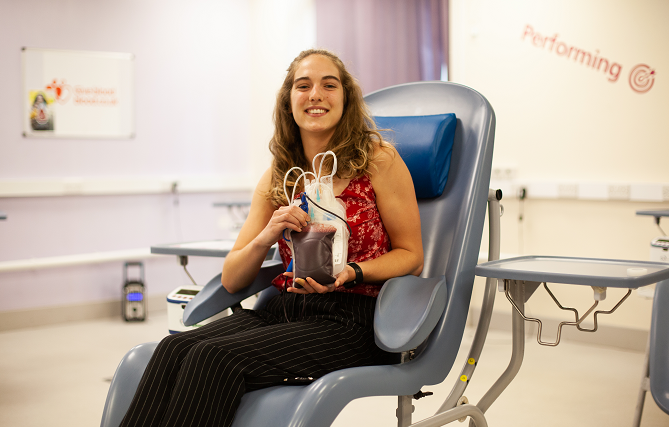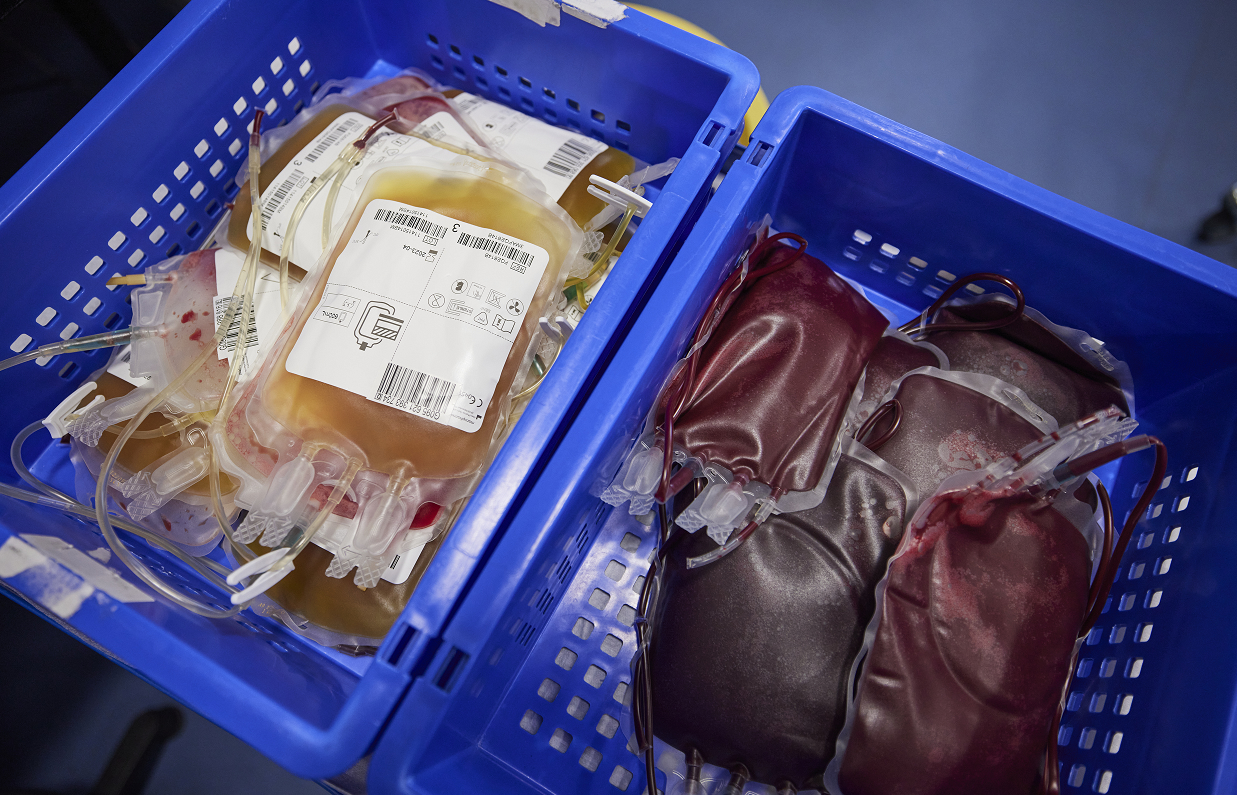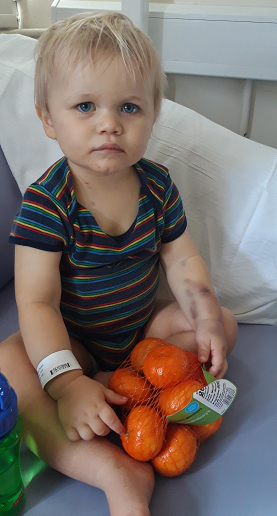Every blood donation session now providing plasma for medicine
This means as a blood donor, you can now save even more lives.
From this week (beginning Monday 10 October), plasma is being recovered from every blood donation session in England to make a lifesaving medicine, so blood donors will save even more lives.
 What is plasma?
What is plasma?
Plasma is the liquid part of blood. It is rich in antibodies, which fight infections, so it can be used to make immunoglobulin, a medicine which strengthens or stabilises the immune system. Around 17,000 seriously people in England receive immunoglobulin for rare and serious disorders every year.
England currently relies on imports but immunoglobulin supplies are under pressure around the world. Supplies can also be affected by temporary shocks such as the coronavirus pandemic, which cut supplies from America, the main source of immunoglobulin for the UK.
International demand for immunoglobulin is predicted to rise by 55% between 2020 and 2026, putting further pressure on supplies. By recovering plasma from blood donations in England, NHSBT will bolster future immunoglobulin supplies to the NHS.
How is immunoglobulin used?
Immunoglobulin is used in two ways:
- To strengthen the immune system of people don’t make enough antibodies - for example if they have a genetic disorder causing a primary immunodeficiency. The donor antibodies fight off viruses and bacteria that the patient could not fight off on their own
- To stabilise the immune system of people whose immune systems are attacking their own body – for example if they have Guillain-Barré syndrome or myasthenia gravis. The donor antibodies help the patient’s immune system regulate itself
Every one of England’s 25 permanent blood donor centres and 50 mobile teams can now provide plasma for immunoglobulin medicine from this week, completing a 14-month roll out. The final mobile blood donation teams which came on board over the last few days are Sutton Coldfield, Portsmouth, Exeter, Horsham, Maidstone, and Brighton.
 No changes to the donation process
No changes to the donation process
As a blood donor, you will not notice any changes. Your blood donation will go ahead as normal, and your red blood cells will be used for blood transfusions as normal.
However, when your donation is processed by NHS Blood and Transplant (NHSBT) at its manufacturing centres in Manchester, Bristol and London and the plasma is separated out, the plasma can now be made ready for use as immunoglobulin.
Romeo's story
 Romeo Russell, 4, from Horsham, needed two infusions of immunoglobins as a toddler after his body started destroying his own red blood cells. Mum Maria, 40, a supermarket assistant and an administration assistant, said:
Romeo Russell, 4, from Horsham, needed two infusions of immunoglobins as a toddler after his body started destroying his own red blood cells. Mum Maria, 40, a supermarket assistant and an administration assistant, said:
“We’re forever grateful to the people who donate.
“Romeo was having two blood transfusions a day as his body was destroying his cells at such a rate.
“Immunoglobulin was used as his body wasn't mature enough to know what to do, he needed adult cells to teach his body. Romeo has gone from being unable to walk across a room to a boy with endless energy.
“We’re so happy that immunoglobulin can now be made from the plasma of blood donors. I know it’s a specialist medicine in high demand and that more children will need it in the future.”
The rollout
There are nearly 800,000 blood donors in England, making around 1.4m donations a year. Not every donation will have its plasma used at first, but in time all the recovered plasma will be used for immunoglobulin or clinical use.
This will improve immunoglobulin supply to the NHS because England has relied solely on imported immunoglobulin for more than 20 years as a precaution against Variant Creutzfeldt-Jakob disease (vCJD). That was until the Medicines and Healthcare products Regulatory Agency (MHRA) reviewed the evidence and advised the Government immunoglobulin could again be made from the plasma of UK donors.
In 2021, the Government directed NHSBT to restart collecting plasma for use as immunoglobulin. As well as recovering plasma from blood, NHSBT is also collecting plasma in specialist plasma donor centres in Twickenham, Birmingham and Reading. The lengthy process of creating a new supply chain and manufacturing the plasma into immunoglobulin means plasma from English donors is due to start reaching patients from 2024.
